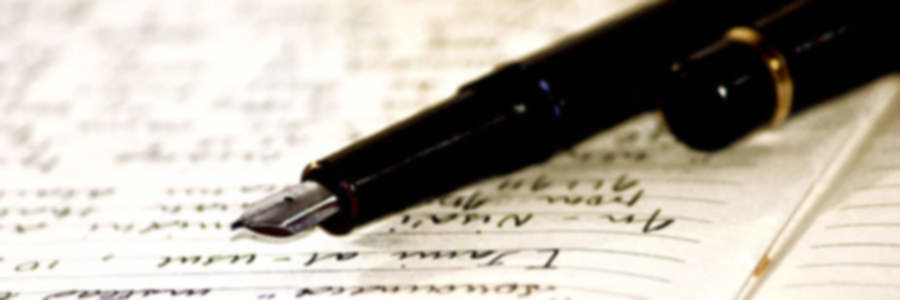Imam Ibnul-Qayyim Al-Jawzi (rahimahullaah) said:
And using the intellect in opposition to the evidences is the basis of all evil in the world. And it opposes the call of the Messengers (‘alaihim u salaam) in every way. This is because they (the Messengers) called toward putting forward the revelation over one’s opinions and intellects, and those who opposed them did opposite to this. The followers of the Messenger put the revelation over the opinions and intellect, and the followers of Iblees (Satan; may Allaah curse him) – or a subsitute from his substitutes – put the intellect over the evidences.
And contradiction between a clear text of the Book and the Sunnah and sound and correct ‘aql cannot be imagined and is infact an impossibilty. So if there appears to be a contradiction between the two then the Revelation is given precedence and is decisive (3) since it comes from the one who is infallible (sallallaahu `alaihi wasallam) , whereas the aql (intellect) of a person is not infallible. Indeed,the aql is the deficient perception of humans, and it is open to misconception, error, forgetfulness, desires, ignorance and inability–thus it is certainly deficient.
If you say that the intellect is to be given precedence over the revelation, then which intellect is to be followed? Are the intellects of the people combined in the intellect of one man or do they vary?; because there is the intellect of the philosophers, the intellect of the atheists, the intellect of the heretics, the intellects of the people of desires and the intellects of the people who confound truth with falsehood. And this why one of the salaf (pious predecessors) said: ”had the desires been one, it would have been considered the truth”; so it is said: ”had the intellects being one, it would have been considered the truth….” [3] And Allaah knows best
Abu Mu-aawiyyah (Abdullaah Al-Gambi)
References:[1] [Soorah Al-Baqarah: Ayah: 213] [2]Dar Ta’aarud Al-Aql Wan-Naql: 9/17-18]
From Shaykh Fawzaan‘s hafizahullaah explanation of Sharh-us-Sunnah:
(lesson 6 – audio/text)
His saying, “It was not left up to the intellects of men and their opinions.”
The Religion is not what men deem to be good or what they hold as their opinion, because this is not the Religion of Allaah. This is the Religion of the people, which they have newly invented. As for the Religion of Allaah the Mighty and Majestic, then it is what He legislated. As for that which the men hold as their opinion, based upon their own opinions, this is not the Religion of Allaah the Perfect and Most High. Rather it is just a religion of whoever holds that opinion. So nothing can be ascribed to Allaah from the Religion except that which He legislated upon the tongue of His Messenger sallAllaahu `alayhi wa sallam. And as for what others besides Him legislated, then it cannot be ascribed to Allaah, rather it can only be ascribed to whoever legislated it, and Allaah is free of it. He the Most High said:
أَمْ لَهُمْ شُرَكَاء شَرَعُوا لَهُم مِّنَ الدِّينِ مَا لَمْ يَأْذَن بِهِ اللَّهُ
Do they have partners who legislate for them religion which Allaah has not permitted (Sooratush-Shooraa (42), aayah 21)
His saying, “And its knowledge is with Allaah and His Messenger sallAllaahu `alayhi wa sallam.” The affairs of the Religion are towqeefiyyah (depend upon text); there must be proofs from Allaah and His Messenger with regard to the affairs of the Religion. The matter is restricted to what occurs in the Book and the Sunnah from the affairs of the Religion. And newly introduced matters and innovations are abandoned, that which Allaah has not sent down any proof for – even if their people hold them to be religion, and they draw closer to Allaah through them, then we turn no attention to these things and we do not believe in them, because the Religion of Allaah is what He legislated and His Messenger.
Because the Religion is based upon knowledge which came from Allaah and His Messenger. And do not follow the desires of the people and the opinions of the people and what they declare to be good and what they follow each other upon, and it has no basis in the Book of Allaah or the Sunnah of His Messenger sallAllaahu `alayhi wa sallam. Just as he `alayhis-salaatu was-salaam said:
“Whoever introduces into this affair of ours that which is not from it, it is rejected.”
And in one narration:
“Whoever does an action which our affair is not in accordance with, it is rejected”[1] So the person who wishes that his action be righteous and be beneficial, then he should adhere to two matters:
The first matter: is that he makes his Religion pure for Allaah and free from shirk.
And the second matter: ittibaa` following the Sunnah of Allaah’s Messenger sallAllaahu alayhi wa sallam, free of innovations and newly introduced affairs.
A person will indeed find many things which contradict what is correct in the `aqeedah, matters which contradict what is correct in matters of worship, many of them; (because) the people have desires, and have their own aspirations, and they have their own opinions and they have their own ways (which they follow). So we do not follow the people, rather we present whatever the people are upon to the Book and the Sunnah. So whatever conforms with the Book and the Sunnah then it is the Truth, and whatever contradicts these two then it is false and futile.
________________[1] The checking of this has preceded on page 66. (Hadeeth of Aa`ishah radiyAllaahu`anhaa reported by Muslim and in the Saheeh of al-Bukhaaree)[Translated by Abu Talhah rahimahullaah]




